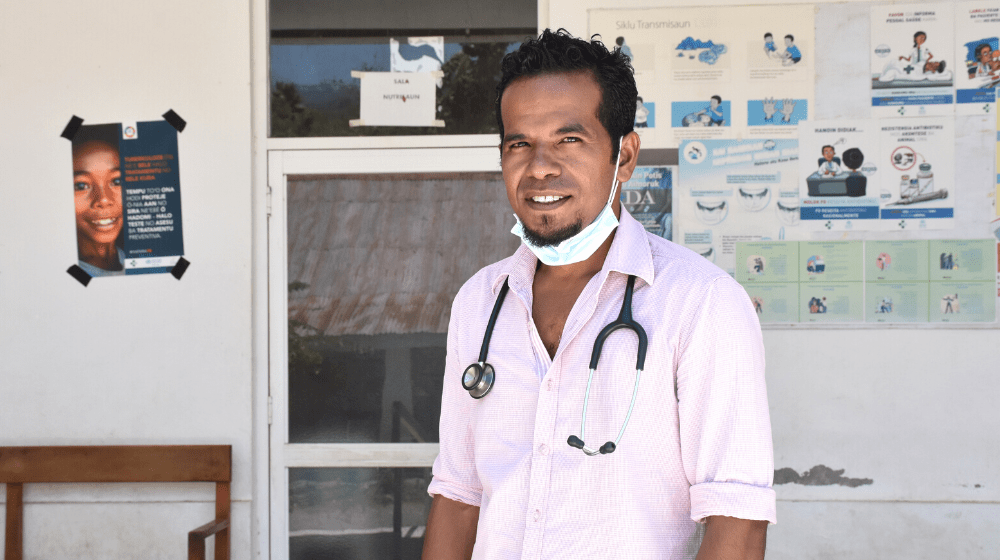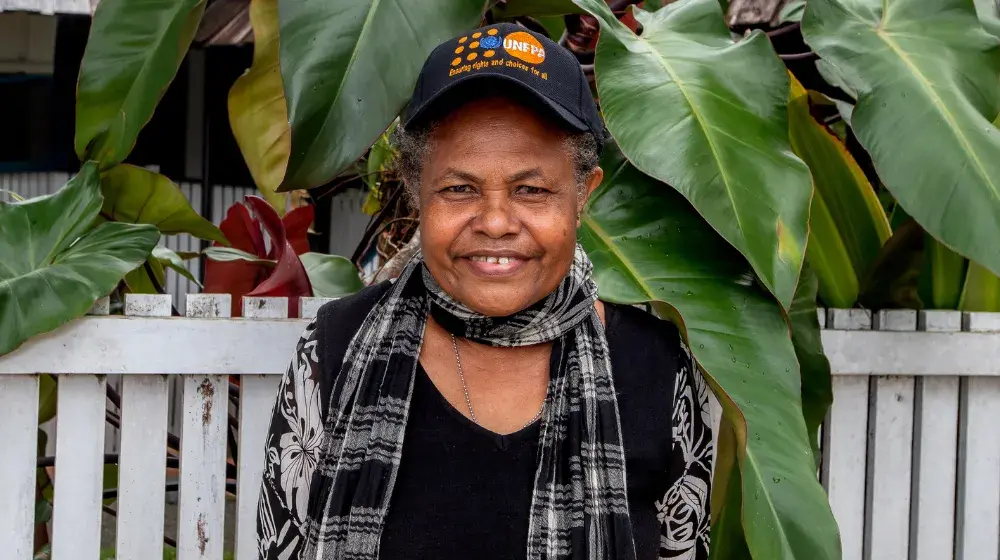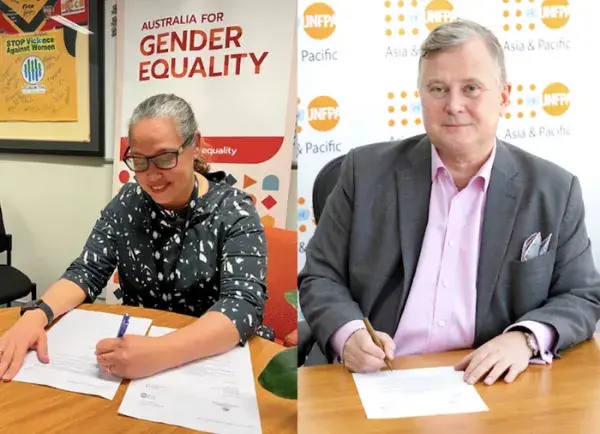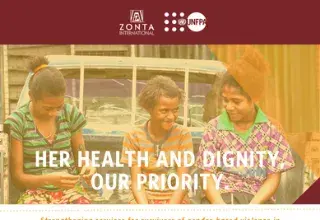“I normally attend to at least one survivor of gender-based violence every day,” says Manuel dos Santos Moro, a medical doctor at the Liquiça Community Health Centre in Timor-Leste. Dr. Manuel is usually the Health Centre’s first point of contact for domestic violence survivors, most of whom receive referrals to the medical facility from the police.
I normally attend to at least one survivor of gender-based violence every day"
As he points out, the high number of cases and tolerance for gender-based violence in the Southeast Asian island country are of great concern -- with four out of five women and men believing a husband is justified in hitting his wife, among surveyed households. Dr. Manuel observes the existence of strong, harmful gender stereotypes and roles, which contribute to the violence.
Amid COVID-19, emerging data show that violence against women and girls is on the rise globally and in Timor-Leste - a country that already had one of the highest prevalence rates in the world. Three in five women women aged 15 to 49 years old have experienced physical and/or sexual violence by a male partner in their lifetime’.
Some married women are afraid to seek medical attention after experiencing violence to avoid exposing an abusive husband,” Dr. Manuel shares. “That is why community awareness is very important. I would like to appeal to authorities and those involved in gender-based violence programmes to raise awareness of the dangers.”
In order to further enhance the skills of health workers such as Dr. Manuel to provide timely and quality support to survivors of violence in line with international standards, UNFPA and the Ministry of Health are launching a course on gender-based violence response for health workers, with support from Zonta International.
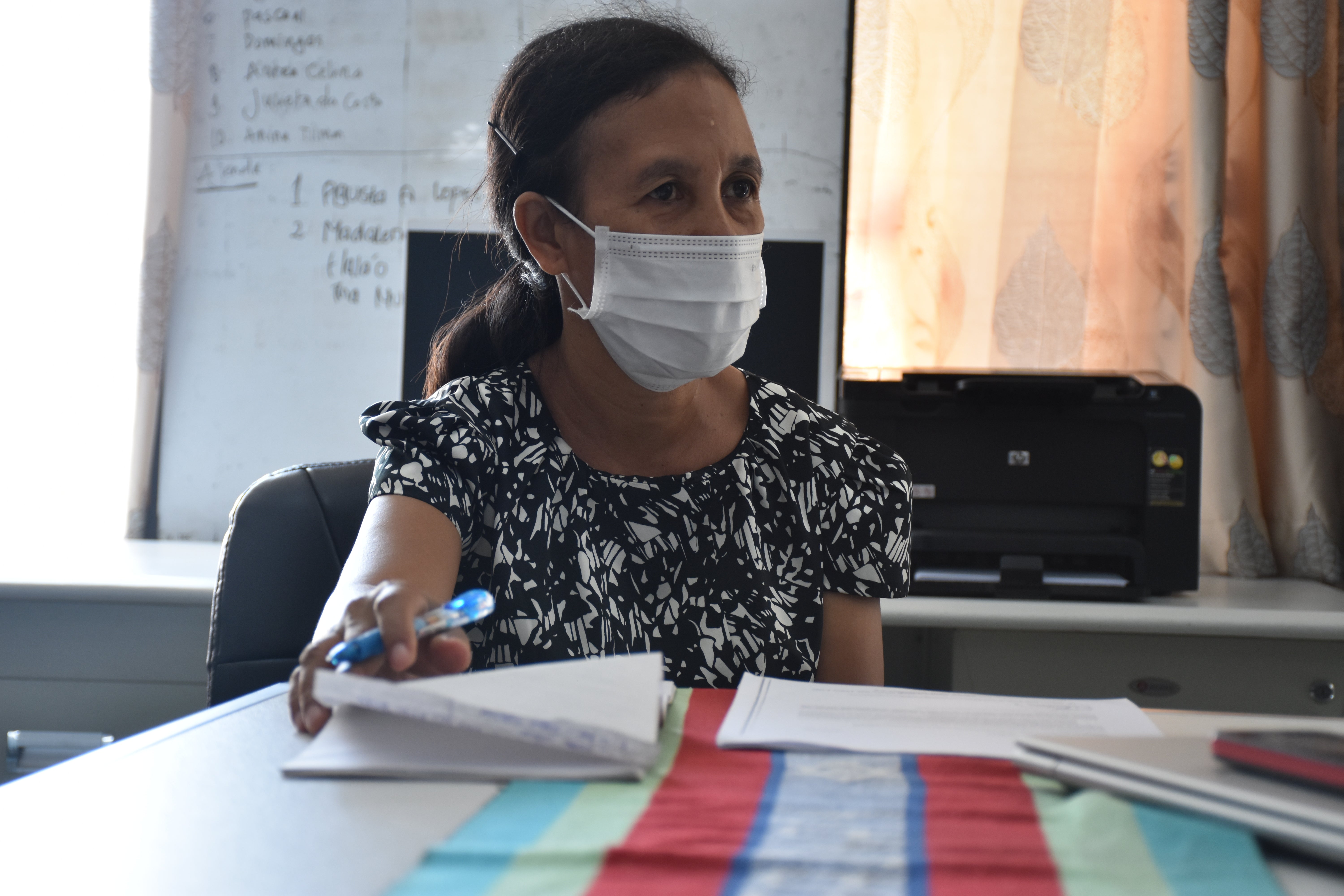
Fatima Isabel Gusmao, the gender-based violence focal point at the Ministry of Health, underscores the urgency for such programmes.
We need to strengthen training for health workers and establish safe spaces in health facilities.”
She also calls for greater multi-sectoral coordination and communication between the different stakeholders and relevant ministries that address this far-too-prevalent human rights violation. To close these gaps, the Ministry of Health is working with UNFPA to construct and improve safe spaces in medical centres for gender-based violence survivors across the country. Similar safe spaces are being set up in six other municipalities with Spotlight (EU) and Together for Equality (KOICA) funding. Through these projects, the multi sectoral response is being encouraged by collaborating with UNDP to link the health and judicial sectors.
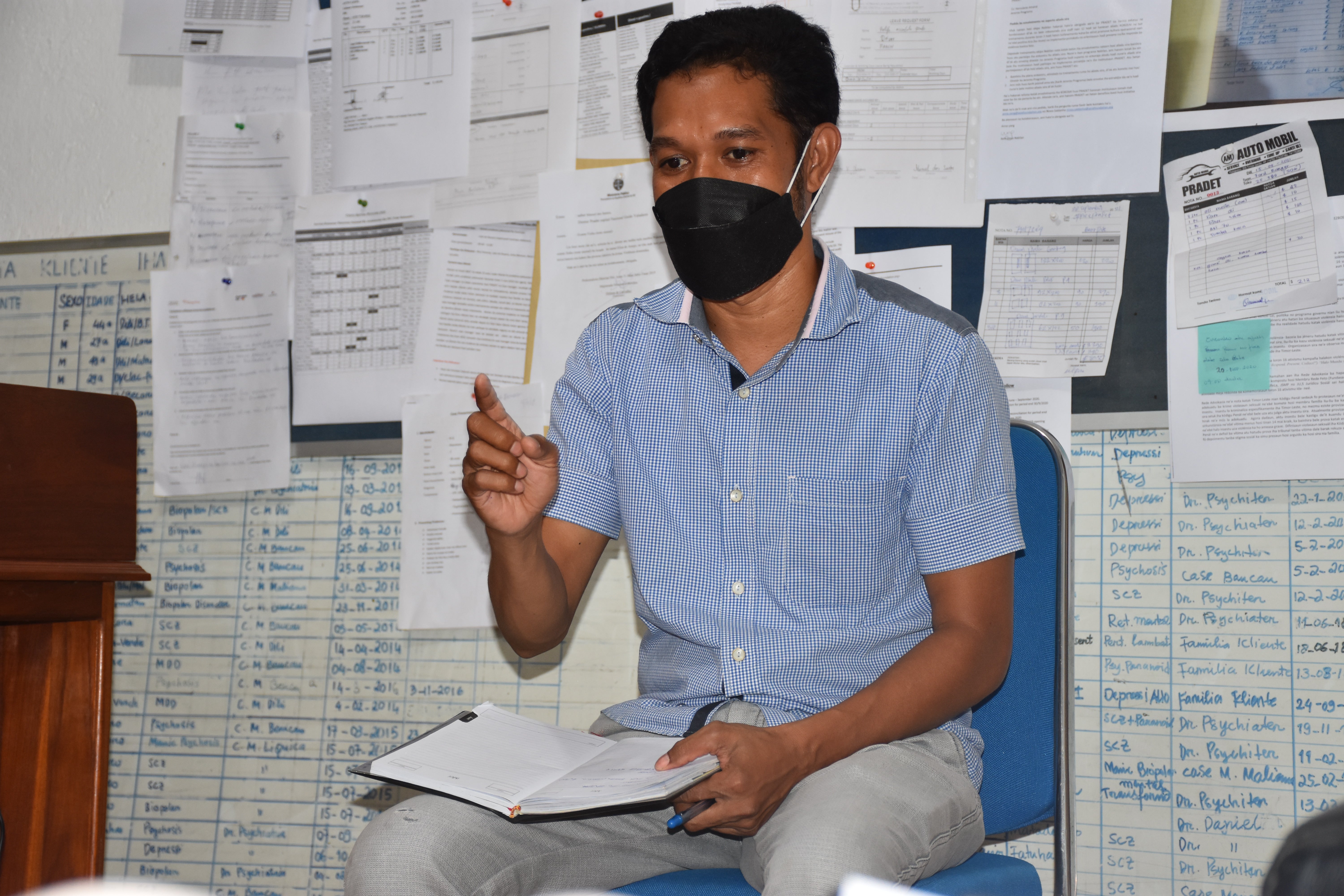
“Personal development courses on gender-based violence and the important role of local authorities in supporting survivors will help address social norms, as participants will also act as agents of change in their own communities,” says Herculano Gradaneiro, a programme manager at Psychosocial Recovery and Development in East Timor (PRADET).
As an implementing partner for Zonta International and UNFPA’s programme to strengthen services for gender-based violence survivors in Timor-Leste, Herculano says there’s also an urgent need for information about available support for survivors, especially within remote communities. Cultural barriers and poor infrastructure pose significant challenges to ending gender-based violence, too.
Cultural biases and patriarchal social norms are still prevalent in Timor-Leste. Many women and girls consider physical abuse by spouses as normal and acceptable, and most cases go unreported. We must create awareness in rural communities to end gender stereotypes and violence.”
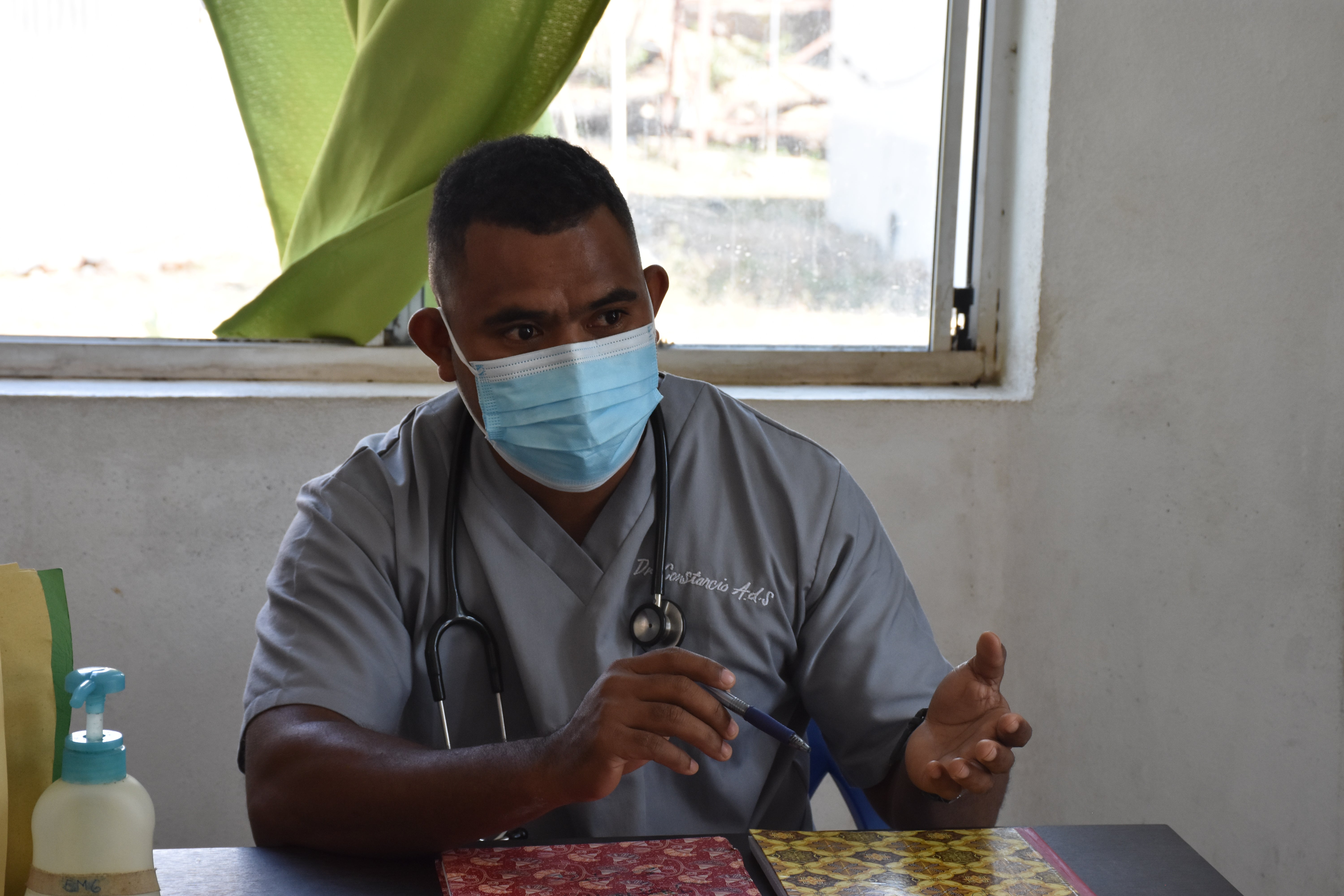
Constancio Araujo dos Santos, a doctor at the Liquiça Community Health Centre’s emergency unit, also notices that communities in rural areas have less awareness of women’s rights and harmful gender norms.
He too recognises the value in improving the health sector’s response to gender-based violence.
Some cases are too serious for just one service provider; these require a multi-sectoral approach. When I treat survivors of domestic violence, I normally address their physical injuries and refer suspected cases of psychological trauma to PRADET and local authorities. I have been trained to identify cases of gender-based violence but I do not have training in treating emotional trauma cases.”
Since 2015, UNFPA, the Ministry of Health and implementing partners have equipped health workers and community leaders with skills to identify, prevent and end cases of gender-based violence in communities throughout Timor-Leste. This has improved their knowledge and capacity to deliver quality, essential and survivor-centred health services in line with global standards.
Building on this work, Zonta International and UNFPA launched the “Her Health and Dignity, Our Priority” programme in 2020 to further strengthen services for survivors of gender-based violence in Timor-Leste and Papua New Guinea.
Zonta International and UNFPA, together with our partners, work to improve gender equality and women’s empowerment to ensure that all women and girls live free from violence.

